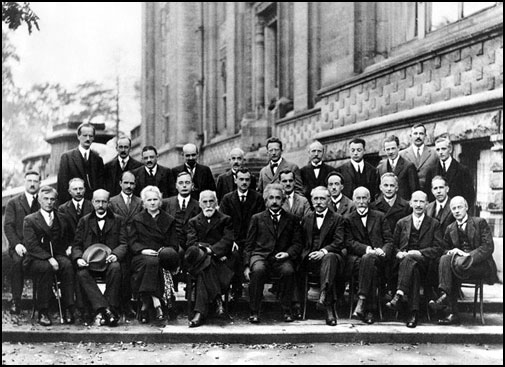Write4U:
I did look it up and I am sticking with it. Instead of "rich" , try "economic elite".
This is a bad pattern you've developed.
Instead of accepting correction of your errors and learning from them, you insist on keeping right on, making the same error over and over again.
What you have, there, is a closed mind.
When we speak of "infinite potential" we are NOT selecting a narrow interpretation used in applied science.
The scope of the subject demands the general all-encompassing application of the term.
In other words "infinite potential" is a catch-all kind of thing that can mean whatever you need it to mean at any given time.
That means it is actually an empty concept - not useful for anything.
This is what happened to Bohm.
What happened to him?
His ideas although perfectly defensible were outright rejected by the scientific powers that be.
No. Like your wikipedia article says, they just did not receive mainstream acceptance, after careful review and consideration.
Conspiratorial thinking, about a rich elite that controls scientific knowledge, just puts you firmly on the Fringe, with the believers in Bigfoot and Atlantis.
I know, but in the world of science, scientists are rich in knowledge, which creates its own elitism and hypocrisy.
You're trying to twist the word "plutocrat" to suit your mistaken meaning, rather than just accept that you used the wrong word the first time. Why do that?
If you want to talk about the guardians of knowledge or an elite cabal of scientists, fine. But don't call them plutocrats. Use the accepted meanings of words. Why can't you do that?
Why is this important in view of the demonstrated scientific prejudice that is clearly evident by J S Bell's own words?
Bell's opinion is Bell's opinion, not evidence of a conspiracy.
Ironically, Bell's own work led to the standard interpretation of quantum mechanics becoming more entrenched and better verified, even though he initially expected the opposite to happen. The experiments have been quite decisive. Bohm's hidden variable theory is inferior to the standard Copenhagen interpretation of quantum mechanics.
I find that pretty a damning accusation of a "mainstream" scientific perspective and convention.
That's the problem when you cherry pick from sources who has their own axes to grind. You ought to read more widely.

